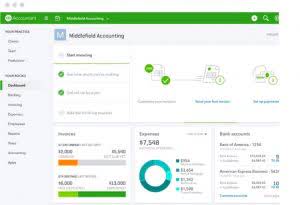
Their expertise includes proficiency in accounting systems such as ERP or AP automation software, a strong understanding of regulatory standards, and the ability to resolve discrepancies efficiently. CFOs and financial controllers may have overlapping responsibilities within a company, but they each have specific roles that differ from one another. This can be confusing for business owners who are trying to figure out which position they need to fill. The Chief Financial Officer (CFO) and Controller are crucial within any organization’s financial hierarchy. While both positions deal with financial matters, they serve distinct functions and possess different responsibilities. Understanding the key differences between a CFO and a Controller is essential for efficient financial management and decision-making.
External vs. internal
Like the controller, CAOs need to know the numbers inside and out, but CAOs are watching out for potential threats and opportunities that will impact the business. This is most clearly reflected in the CAO’s role in ESG reporting and risk management. CAOs usually hold a degree in finance, accounting, or economics, and many hold a certified public accountant (CPA) license. In addition, today’s CAO is expected to be more than just the head of accounting; they are expected to partner with the CFO. Their job is to manage a team of personnel performing a variety of accounting and financial functions.
When to Hire a CFO or a Financial Controller
They also monitor the economy, the company’s projects, plans for future investments, analyze competitors, etc. As part of their duties, the CFO manages the company’s financial resources, as well as supervising all finance personnel. Their aim is for the company to plan its finances strategically, to grow the company by providing them with the funds, as well as to find new customers. CFO or Chief Financial Officer are senior executives who direct the finances of a company. CFO manages the company’s cash flows, financial plans, identifying the company’s strengths, evaluating the weaknesses of its finances, etc. The CFO is one of the most important and highest positions in the company included in the C-suite.

Strategic vs. Operational Decision-Making
- To better appreciate the difference between both roles, let’s look at a couple of hypothetical business activities and see how each contributes.
- On average a full-time CFO salary is $229,000 per year, not including vacations, bonuses and other benefits.
- The Controller, on the other hand, reports to the CFO and is responsible for managing the day-to-day financial operations.
- Most CFOs also possess a master’s degree, often an MBA, to round out their technical education with business and operational acumen.
- Controllers aspiring to advance must develop broader skills, such as leadership and strategic planning, to prepare for this transition.
- The CFO assesses potential investment opportunities, deciding where the company’s capital can be best used.
They handle immediate concerns, such as cash flow management, accounts payable and receivable, and that all financial practices comply with laws and regulations. The controller prepares financial statements, which provide an overview of the company’s financial status. These reports include the balance sheet, income statement, and cash flow statement. The controller must make cfo vs. controller sure that these documents comply with accounting standards and regulations.

Cross-Border Business Payments: How They Work, Challenges & Solutions

No matter your industry, size, or goals, we help you handle the most challenging demands facing your company and Organization. The rank is similar to other positions like a chief operating officer (COO), chief information officer (CIO), and chief marketing officer (CMO). The controller makes sure that the day-to-day operations relating to finance are executed and adjusting entries run properly. Our awesome CFO service add-on offers custom accounting at a price that fits within many budgets. Follow the above guidelines to know when the time is right to hire a CFO or if instead you should hire a controller.
When to hire a CFO vs. controller
This means you don’t have to choose a controller vs CFO when you work with us because you’ll get both capabilities under one roof. Small companies (~$10MM in revenues) can expect to pay about $200,000 per year (including bonus, benefits, etc.). Alternatively, you can reduce your costs by outsourcing this function to a firm that offers fractional finance and accounting services.
- If you have multiple income streams and are starting to see some serious cash flow, it’s time to start thinking about hiring a CFO.
- Though the two roles collaborate closely to efficiently manage and align financial operations to the company’s strategic objectives, they each serve specific functions in an organization’s hierarchy.
- Controllers typically report directly to the CFO (except in cases where there is a COA) and usually lead a team of accountants, bookkeepers, and accounts receivable/payable clerks.
- If you’re bogged down by operational chaos — unreconciled payments, confusing international fees, a nagging fear about tax compliance — your foundation is shaky.
The role of the financial controller is pivotal in ensuring an organisation’s financial accuracy, compliance, and operational efficiency. In an environment where financial landscapes are increasingly complex, their expertise extends beyond day-to-day management to shaping long-term financial strategies that align with corporate objectives. Modern financial controllers leverage advanced financial tools and predictive analytics platforms to enhance precision, https://sklep.noentry.pl/mastering-agricultural-accounting-a-deep-dive-into/ streamline workflows, and drive strategic decision-making.